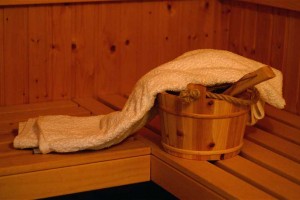I may get commissions for purchases made through links in this post.

Aromatherapy is the therapeutic use of essential oils derived from plants to promote physical and psychological well-being.
These oils, also called volatile oils, are used in massage, taken as drops or supplements, and used as scents.
Who isn’t familiar with their grandmothers lavender coathanger satchets and potpourri? There are more modern versions too.
There’s for example mint room spray to freshen up the home or a fragrant sleep pillow in which the deep, musky aroma of hops and lavender is claimed to enhance sleep.
This post is about exclusively about (aromatherapy) scents and the effects on our wellbeing.
Some examples of which effects are linked to aromatherapy scents.
- Peppermint – Cool sensation. Helps to provide mental sharpness. Great for home office or kid’s room. Good for staying alert.
- Lemon grass – Emotionally uplifting; anti-septic, anti-viral, and anti-bacterial.
- Eucalyptus – Opens up air ways. Very spa-like scent. Helps to promote a dreamscape.
How does it work?
The idea behind aromatherapy in the form of scents (inhalation) is that when the molecules enter the lungs the scent supposedly stimulates certain parts of the brain that trigger reactions of therapeutic value. Hence a better feeling. Provided that enough is inhaled to produce meaningful concentrations of herbal chemicals in the body.
According to Cancer.org:
A leading theory is that smell receptors in the nose may respond to the smells of essential oils by sending chemical messages along nerve pathways to the brain’s limbic system, which affects moods and emotions.
“Aromatherapy? I’ve heard of that. Isn’t that some kind of pseudo-science?”
As always, there’s is much anecdotal evidence for the health benefits linked to aromatherapy. It is claimed that mixing and blending essential oils helps to create a relaxing and healthy home as well as more powerful effects. But many anecdotes make no scientific evidence.
Which makes me wonder, can a scented pillow really speed up the onset of shuteye? And what about other health and mood enhancing claims made about aromatherapy scents?
We all know that plants, herbs, fruits, and other herbal sources can inhibit potent health benefits. Studies show that essential oils, when used topically, are able to effectively treat fungal infections and hair loss. Peppermint oil might relieve tension headaches according to limited studies.Likewise, “Tiger Balm proved more effective than placebo and just as effective and more rapid-acting than acetaminophen.”
However we are looking into scents here.
What about Aromatherapy scents, do they have any proven effect?
There’s a vast range of commerical products available that promise bold health benefits. However, there’s little scientific proof confirming these health claims.
There’s also the problem that it is very hard, if not near impossible to set up well designed studies or clinical trials that effectively measure the effects of aromatherapy. Therefore experts doubt the scientific value of many studies conducted in this area.
In three of the most trustworthy studies, the effects of two of the most popular scents in aromatherapy, lemon and lavender were examined.
- Lemon oil showed a positive effect on mood while lavender oil did not. The researchers found that: “Neither smell had any positive impact on any of the biochemical markers for stress, pain control or wound healing.”
- A study held among 66 women that were about to undergo abortions, 10 minutes of inhaling the essential oils of vetivert, bergamot, and geranium failed to reduce anxiety significantly more than placebo treatment. 7
- Another clinical trial demonstrates that, rosemary oil failed to reduce tension during an anxiety-provoking task and might have actually increased anxiety.
The value of aromatherapy in your home
Since aromatherapy is focused on the therapeutic properties of a scent, and only few have scientific evidence backing health claims, we’d better speak of the benefits of using scents in your home.
Scientific proof for therapeutic effects or not, smell can affect us in various ways. Various scents trigger different emotions and sensations in different people.
A foul odor can be so repulsive that it will literally make you sick to your stomach. A pleasant scent can be soothing, calm you down, and possibly affect you in other ways. Scents can also invoke strong memories and emotional response.
Smelling is one of our five basic senses so it totally influences us. In fact, studies show the sense of smell is the most powerful stimulus known.
No wonder home owners use tricks such placing fresh coffee beans or just baked cookies in their kitchen to influence potential buyers. This invokes a homey feeling that may help close the deal. Grocery stores know as no other to use scents to their benefit.
When the aroma of baked bread was released in a US supermarket, sales in the bakery section increased threefold.
(Hirsch, 1995, IJA)
Back to therapeutic effects.
For dealing with anxiety, a wide range of scents is recommended. Because of the complexity of this matter it basically comes down to trying scents out and see which (if any) works for you to help reduce anxiety.
The following scents are linked to anxiety reduction (even though studies debunked some of these claims); bergamot, lavender, melissa, myrrh, chamomile, cardamom, cypress, rose, frankincense, neroli, nutmeg, pine, vanilla, marjoram, patchouli, and orange/lime.
Placebo effect
In some studies it turned out that when expectations about the effects of certain aromas were created by the researchers, those effects occurred. Possibly because of the expectations.
This way, scents can aid reaching a certain goal. Whether it is making someone feel comfortable or energetic. After all, the placebo effect is known to have a very strong impact on a person’s health.
In fact it’s just like with colors and their supposed affects on your mood. Scents, like colors, have associations attached them. Lavender oil, for example, makes many people think of their grandmother.
Orange blossom oil contains an active ingredient that is thought to be calming.
Allergic reactions
Something else to take into account, allergic reactions to inhaled or topical plant fragrances are not uncommon.
Concluding
Until we know more about how inhaled aromatherapy works (assuming that it does) taking the advertised health claims with a grain of salt is probably wise to do.
On the other, hand, if a certain scent appeals to you, why not enjoy it in your home. After all it isn’t said that aromatherapy does not work. It might work through the olfactory centers of the brain. Which means no more than that a pleasant fragrance may be soothing, calming, refreshing, or stimulating. Which is actually a very logical concept.
Admitted, aromatherapy provides a nice way to add some atmosphere to your home. The scents of essential oils derived from nature can give you a certain feeling that matches the moment of the day, your activity, or mood. And they make a safer alternative for scented candles or chemical air refreshers.
How to use
Applying essential oils as scents in your home can be done in two ways.With a fine mister such as olive oil sprayers or an essential oil diffuser.
Something to consider when buying essential oils. Essential oils can be very expensive at grocery stores like Whole Foods so it is often recommended to buy sample packages. This way you can find out which scents appeal to you without having to pay large sums of money.
Nowadays, many products sold as “aromatherapy” contain synthetic fragrances that do not have the same properties as essential oils.
Essential oils extracted from trees, flowers, herbs, and fruits have been used in the home for health, beauty, stress-relief, and to promote a good mood for over 1,900 years, back to the time of De Materia Medica written by the Greek pharmacologist Pedanius Dioscorides in the first century AD1 . Common ingredients in essential oils are; flower blossoms, fruit, leaves, stems, resins, bark, roots, and wood.






















Hi blogger, i must say you have high quality articles
here. Your page should go viral. You need initial traffic
boost only. How to get it? Search for; Mertiso’s tips go viral
We all know that there are already a lot of commercial products available in that market that promises some good health benefits and that includes these different aromatherapy scents. We may trust all these products but certainly, there is a little scientific proof to confirm all of its health claims.
You are a nice blogger! Thank you for your priceless efforts. Your blogs are so informative and useful. Hope! you will provide us like this one in future.